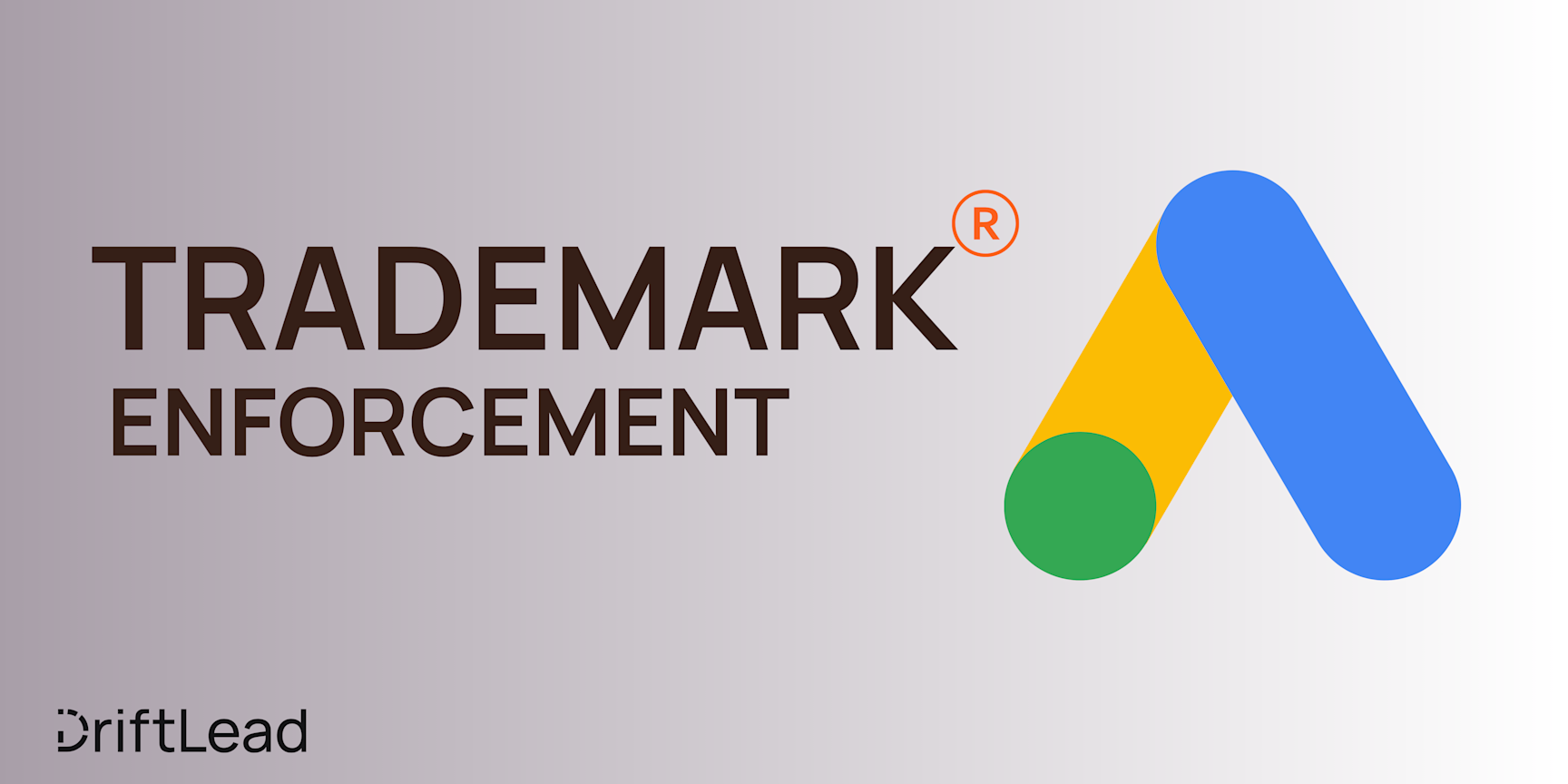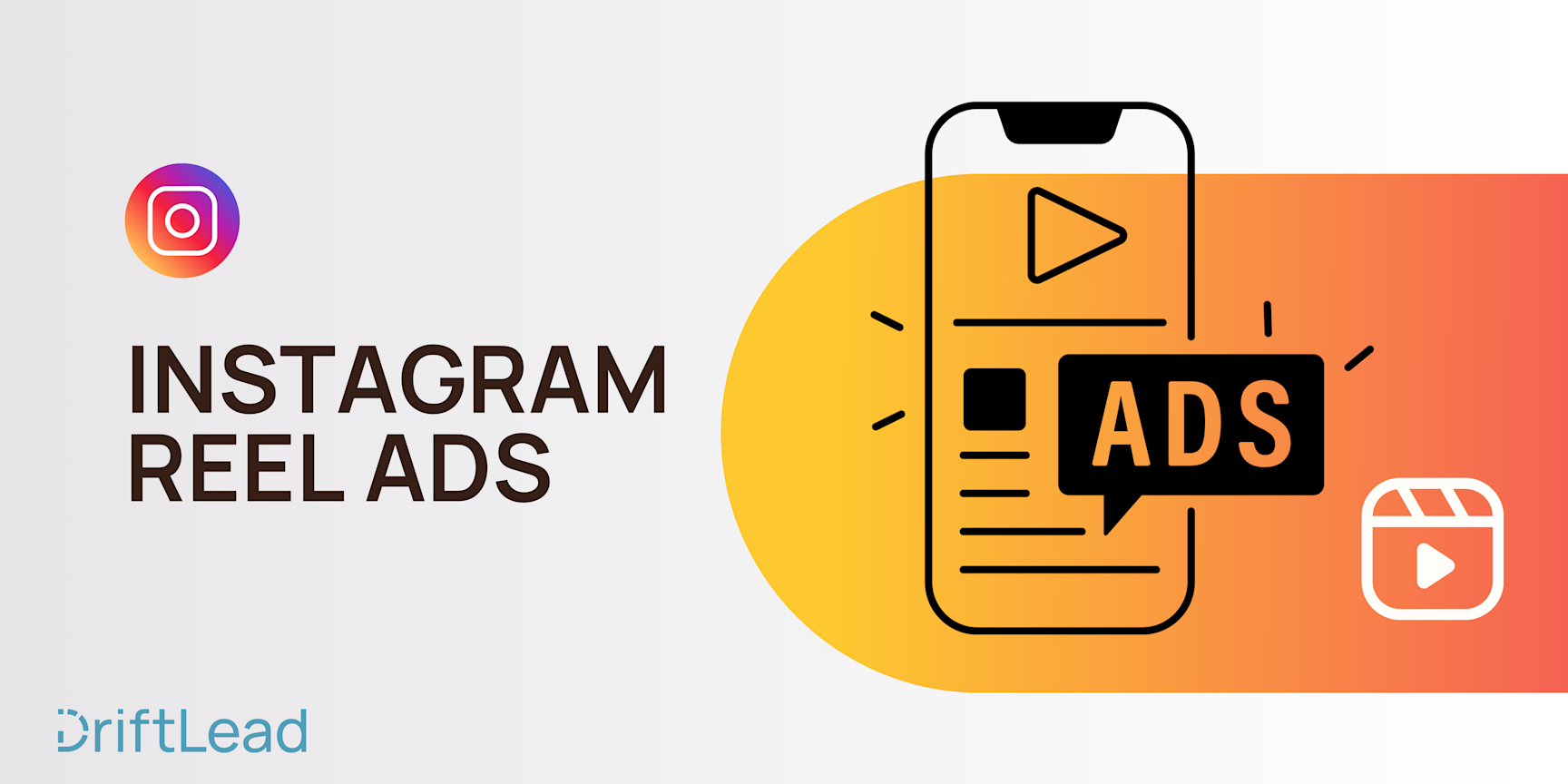How to Link GA4 to Google Ads and Vice Versa: A Step-by-Step Guide (2023)
30 Aug, 2023
Learn how to link your Google Ads account to Google Analytics and how to import conversions from GA4 to Google Ads in this step-by-step guide.
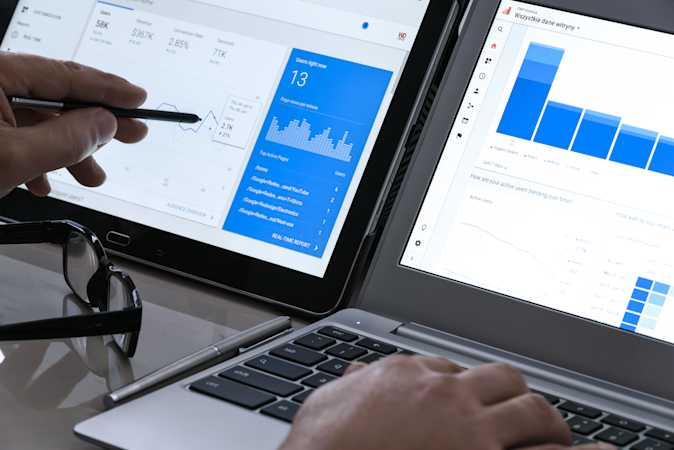
Jump to:
Hop on our weekly newsletter train! We're sharing tips so stellar, we're practically job-threatening ourselves!
So you've got Google Analytics on one hand and Google Ads on the other. But isn't it high time they met and made your life a bit easier? Linking these two platforms is the secret ingredient your marketing campaign is missing. It's like the red wedding...without the surprise sabotage...a match made in advertising heaven!
In this guide, we'll walk you through the yin and yang of linking these platforms—because, yes, you can (and should) link them for a complete, harmonious marketing Qi. But wait, there's more! You can link from Google Analytics to Google Ads and from Google Ads to Google Analytics. That's right, it's a two-way street in this data-driven relationship. So, settle in, grab a caffeinated beverage, and let's get your Google platforms talking to each other...in the nicest possible way.
Why You Need to Make the Link 🔗
Alright, why even bother with this digital matchmaking? Well, let's put it in terms we can all understand:
Better Data = Better Decisions 📊
When Google Analytics and Google Ads are linked, you're getting a 360-degree view of your customer interactions.
Targeting Game: Level Up 🎯
Ever wondered how to make your targeting as precise as Arya Stark's needle? Well, when these two are linked, you can import specific audiences from Analytics into Ads, fine-tuning your campaigns like never before.
Conversion Boosting, Anyone? 🚀
Oh, and let's talk about those conversions. You can import goals and e-commerce transactions from Google Analytics directly into Google Ads—revenue metrics and all.
Cross-Platform Insights 🌉
Linking Google Ads to Google Analytics helps you see how your ads perform beyond the click. You can track post-click behavior, like how long people are staying on your site and what they're doing when they get there. It's the digital equivalent of seeing not just who enters your store but what aisles they walk down and what they pick up.
Save Time, Save Money 🕒💰
You're not running a charity here. Time saved on manual data diving means more time for strategizing—and maybe even clocking out early on Fridays.
The Two-Way Street: Understanding the Directions 🔄
So, you've decided to go for it, but wait—there's a twist! Linking Google Analytics and Google Ads isn't a one-way street; it's more of a mutual relationship, like that between PB&J or Netflix and chill. Each has something the other wants, and they're willing to swap. 🔄
Importing Conversions from Google Analytics into Google Ads 📥
This is the classic way most people think about linking. You're bringing all the valuable conversions and user behavior metrics from Google Analytics into your Google Ads platform.
No more troubleshooting misfiring GTM events, or trying to get your developer to actually respond to your emails. With a couple of clicks, you can get the conversions in GA seamlessly flowing into your Google Ads campaigns—which, let's be honest, is a must these days with automated bidding.
Linking Google Ads to Google Analytics 📤
Ah, but don't forget the reverse—linking Google Ads to Google Analytics. This is like playing your favorite song on the jukebox (no Nickleback, please) and watching how everyone in the bar reacts. You get to see what users do on your site after they've clicked on your ad, making it easier to understand what's resonating with your audience. In short, linking Google Analytics to Google Ads helps you see how effective your ads are at driving customer action on your website. On the flip side, linking Google Ads to Google Analytics ensures you can see how users behave after they've clicked on your ads. It's not just useful; it's symbiotic.
How to Link GA to Google Ads: Step-by-Step 🤝
Ready to become the John Snow of digital analytics? Then, it's time to link Google Analytics to Google Ads so that your advertising data blends seamlessly with your website analytics. Don't worry; there are no dragons required—just a few clicks.
Step 1: Sign In & Access Admin Settings 🔐
First, log into your Google Analytics account. Head over to the 'Admin' section because that's where all the magic happens.

Step 2: Property Settings 🏡
Navigate to the 'Property' column (generally the second option).
Step 3: Google Ads Linking 🤝
Scroll down until you see 'Google Ads Links' Under the "Product Links" section. published

Step 4: Link Your Account 🌐
You'll now see a blue "Link" button on the right that will let you select the Google accounts managed by your Google ID.
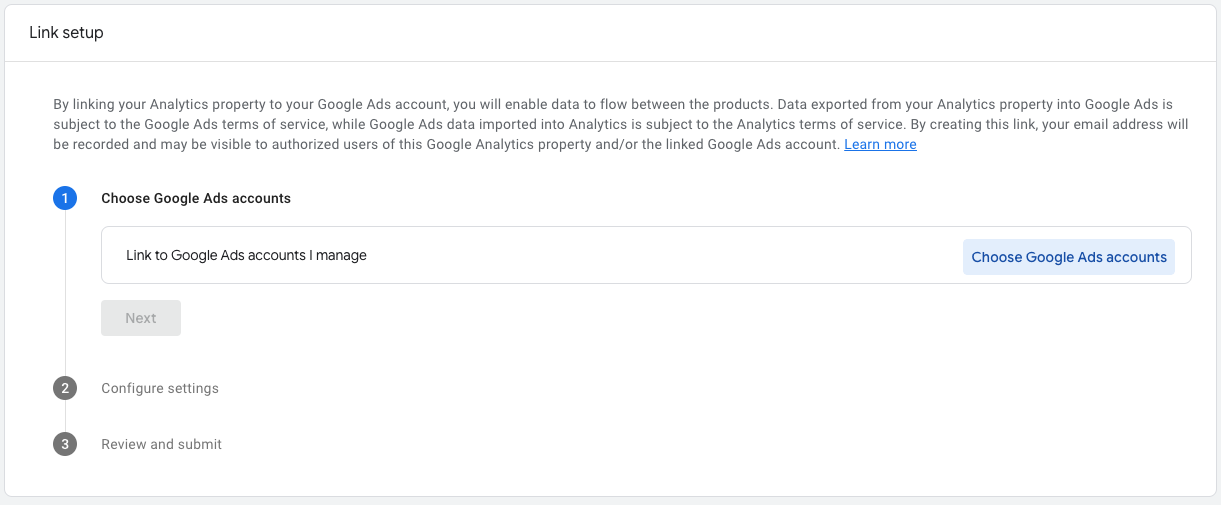
Step 5: Configure and Activate 🛠️
Time to configure your settings. Make sure to enable auto-tagging so GA knows how to interpret the data coming from Google Ads. Confirm, and click 'Done.' You can find this by going to your Google Ads interface, navigating to settings -> account settings -> autotagging.

Step 6: Victory Dance 🕺
Congratulations! You’ve just linked Google Analytics to Google Ads. Take a moment to revel in your newfound powers—or just sip your coffee, you've earned it. ☕
An Alternative Way to Do This 🔄
If you are still mourning the sunsetting of Universal Anlaytics—it's ok—there is another way of doing this without subjecting yourself to the mysterious interworkings of GA4. Instead, log into your Google Ads account, navigate to Tools and Settings (in the top bar) -> Linked Accounts -> Google Analytics -> Details -> Link. Then, follow the prompts. If you're smart enough to get to this part, we trust you can figure it out. 😉
How to Import Conversions from GA to Google Ads: The Final Frontier 🚀
So you've linked Google Analytics and Google Ads. Now let's talk about funneling those GA conversions into your Google Ads campaigns. Because what's good is data if you can't put it to work, right?
Step 1: Get Your Google Ads Ready 🎯
Log into Google Ads and head straight for the 'Tools & Settings.' It's become your second home at this point, hasn't it? Well...only if you followed the alternative route above.

Step 2: Conversions, Here We Come 📈
Navigate to the 'Measurement' column and click on 'Conversions.'
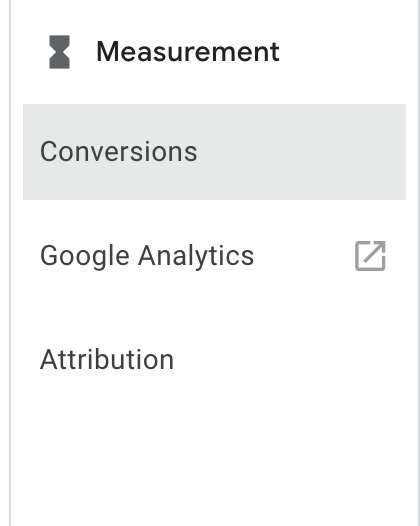
Step 3: Create a New Conversion Action
Hit that big, hard-to-miss blue button at the top that reads "+ New Conversion Action." But just in case, for some absurd reason, you missed it, we've included a screenshot below.
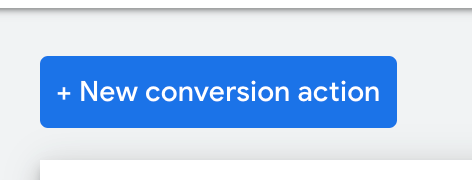
Step 4: Choose 'Import' 📤
Among the options, you'll find 'Import.' Click on that, and then choose Google Analytics 4 properties.
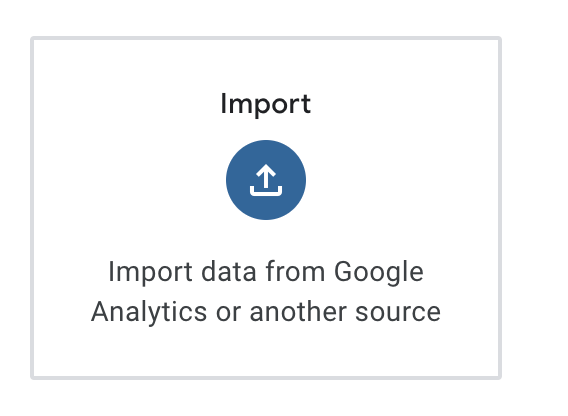
Step 5: Select Your Conversions 🎉
You'll see a list of the GA conversions you can import. Choose the ones that matter most for your campaign. Usually, this will be your leads or purchases.
Step 6: Import and Confirm ✅
Hit 'Import and Continue.' Then hit 'Done.' It's that simple.
Step 7: Celebratory Dance 💃
Okay, no need for a full-on dance number, but give yourself a nod of approval. Your Google Analytics conversions are now in Google Ads, making your campaigns smarter than fifth grader.
Step 8: Verify and Monitor 🕵️♂️
Just to make sure everything's working properly, check your Google Ads account in a day or so to ensure the data is coming in as it should
FAQs: Questions You Didn't Know You Had 🎭
Welcome to the FAQ section, where we address your questions faster than Tyrion Lannister can down a glass of wine. Winter may be coming but the answers are already here.
Q1: Do I have to link Google Analytics to Google Ads? 🤷♂️ A: Not a requirement, but it's kind of like Jon Snow leading without Ghost by his side—doable but not as impressive.
Q2: Is it possible to unlink the two platforms? 🔄 A: Google may be the search (and email, and advertising, and map platform, and...well...you get the point) leader. But it's not a ruthless one. Of course, you can unlink your accounts at any time.
Q3: How long does it take for conversion data to appear in Google Ads? A: Usually within 24-48 hours.
Q4: Will linking mess up my existing data? 📊 A: Nope, linking only adds to your data, making your insights richer. It doesn't work retroactively.
Q5: What about data privacy concerns? 🔒 A: A concern worth having, and both platforms have their own Night's Watch guarding your data. But it's good to stay updated on any potential privacy policies.
Q6: Is it possible to link multiple Google Ads accounts to one Google Analytics property? 🤔 A: Although an unusual case, yes, you can—but manage them wisely.
Q7: Will my ad spend increase after linking? 💸 A: Not automatically, but being armed with more data might make your automated bidding strategies get a little trigger-happy. Keep an eye on that budget.
Q8: Any common mistakes to avoid? 🚫 A: Make sure you're not importing conversions that are as irrelevant to your goals as Bran was to... well, most things.
Conclusion 🌠
Well, there you have it—your guide to linking Google Analytics and Google Ads, faster than you can say "Dracarys!" We made that pretty easy for you, but if you're feeling overwhelmed...fear not. Click below for a free marketing plan tailored to your business needs. After all, a Lannister always pays his debts, but we say you don't have to break the bank to rule your industry.
